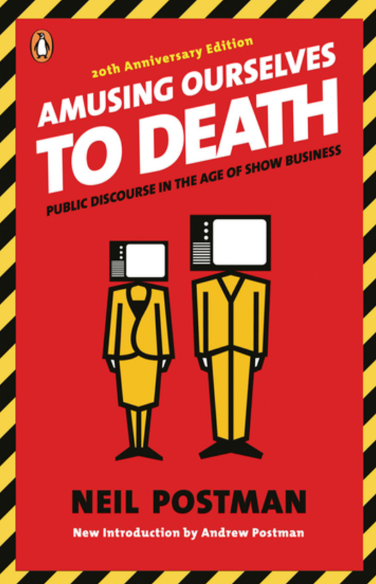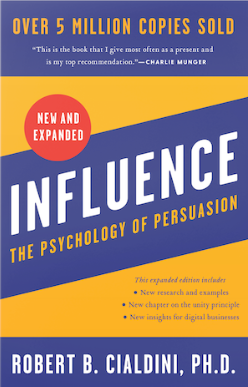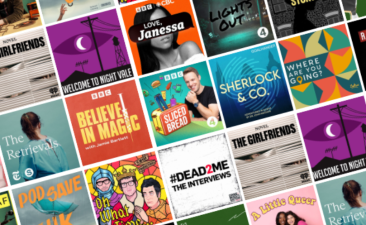Best Books to Read If You’re Burned Out from Social Media
In this fast-paced world, people often rely on a short video or graphic novel for information. If you're tired of social media, it's best to read a book; it contains the answers to all your questions.
In this fast-paced world, people often rely on a short video or graphic novel for information. If you're tired of social media, it's best to read a book; it contains the answers to all your questions.
"Empty Heart"
Author: Gabor Mattei
Are you struggling with addiction? Is addiction a disease? Why do we become addicted? How can we overcome it?
"Empty Heart: The Truth and Healing of Addiction" provides detailed answers.
In this book, Dr. Gabor Mattei draws on decades of experience working with patients struggling with drug addiction and mental illness, as well as recent psychological research, to offer a humane perspective on addiction.
Dr. Mattei argues that addiction isn't confined to the weak-willed but a challenge everyone can face.
Addiction isn't a disease, but rather the result of a complex interplay between personal history, neurodevelopment, brain chemistry, and addictive substances and behaviors.
Addiction stems from inner emptiness and boredom—essentially a failure of self-regulation and an inability to find self-satisfaction. Especially those who experience neglect or abuse in their first few years of life miss out on the opportunity to properly develop the neural systems associated with reward, motivation, and self-control. This leads to a sense of emptiness and insufficiency that becomes their "default state."
As a result, people constantly seek external gratification, turning to addictive substances or behaviors. However, these external stimuli never truly fill the inner void and are often harmful to both body and mind.
Whether it's phones, games, cigarettes, or alcohol, they consume our precious time, isolate us from emotional connection with others, and distance us from our ideals.
And yet, we lack self-control and are constantly led by them. After each moment of relief, we fall back into deeper pain.
If you want to break out of this cycle, don't miss this book!
"Amusing Ourselves to Death"
Author: Neil Postman

I used to think scrolling through my phone was relaxing. After finishing a busy day, I'd lie down and watch short videos or play games, justifying it as a proper relaxation and a balance between work and rest. Later, I discovered that this kind of phone-scrolling entertainment didn't truly relax me. Instead, it made my mind increasingly unclear and sometimes even made me anxious.
Because I didn't grow after scrolling, I felt like my time was wasted.
Neil Postman said, "There are two ways for the cultural spirit to wither: one is Orwellian—culture becomes a prison, the other is Huxleyan—culture becomes a farce."
Through his profound analysis of the shift from print dominance to television dominance in American society, Postman pointed out that the characteristics of public discourse in society have gradually shifted from rationality, order, and logic to being out of context, superficial, and fragmented.
On television, all public discourse is presented as entertainment, and people willingly become vassals of entertainment, ultimately leading to the social phenomenon of "entertainment to death."
The entertainment aspect of the media has dominated the way information is transmitted, making it superficial and thrilling rather than profound and rational.
This trend not only weakens our ability to think about complex issues but also changes our values, leading us to pursue fleeting pleasures while neglecting true aesthetics and rational thinking. Social media has long dominated our lives. While greatly facilitating our lives, it has also trapped us in a quagmire of passive reception and entertainment-first thinking.
This book is not only a critique of the television age, but also a warning against the entertainment-driven trend in modern society.
It reminds us to be wary of media manipulation and influence, and to cultivate independent thinking and critical thinking.
We should actively pursue valuable and meaningful forms of entertainment, rather than being controlled by the media and becoming its vassals.
"Greedy Dopamine"
Authors: Daniel Lieberman / Michael E. Long
Daniel Z. Lieberman
Do you often encounter these problems in your life:
A once romantic relationship suddenly fades, almost all your plans fall through, you often get carried away with short-lived enthusiasm, and you can't stop scrolling through short videos.
This is all due to a single molecule in the brain: dopamine.
Dopamine is a term we hear often in our daily lives. It is closely related to our lives, and is often associated with happiness. But we rarely can articulate its specific functions. Dopamine, the neurotransmitter known as the "desire molecule," plays a crucial role in our lives.
The book details dopamine's "reward prediction error" mechanism, explaining how it drives us to constantly pursue the unknown and higher goals.
This mechanism not only allows us to experience the joy of gain but also fuels our drive to pursue our goals.
However, dopamine is a double-edged sword.
It can empower us with motivation and creativity, giving us the courage to pursue our dreams and explore the unknown.
It can also lead us to sink into the abyss of desire, lose self-control, neglect present happiness, and even make impulsive and poor decisions.
This characteristic explains why some people become addicted to gambling, frequently change partners, or constantly pursue greater achievements, even when they already have much.
A full understanding of how this substance influences our emotions, decision-making, and lives can help us fully tap into our brain's potential, improve efficiency, and achieve better performance.
"Influence"
Author: Robert Cialdini
"Influence"
Author: Robert Cialdini

This book, a classic in social psychology, is considered the "modern Chinese dictionary" of persuasion. It details the seven principles underlying persuasion: reciprocity, commitment and consistency, social proof, liking, authority, scarcity, and alliances.
The new edition of "Influence" boasts over 100,000 new words and nearly 50 new business cases.
Psychologist Robert Cialdini explains why some people are so persuasive, while we are so easily deceived.
The seven psychological weapons hidden behind our impulsive compliance are the root of all this, and masters of persuasion skillfully employ them to coerce us into submission.
Why do you feel so compelled to stop using your phone even though you know it's a waste of time?
Why do we so often buy useless things after seeing an advertisement?
Behind each of these behaviors is influence.
By understanding the mechanisms of influence, we can view various social phenomena more rationally and avoid being misled by false information or negative behavior. This book is based on social psychology and consumer psychology. Whether you're working in branding, marketing, or personal development, or looking to influence others, this book is a must-read.
The fascinating thing about psychology is that once you gain an understanding of a topic, you'll unconsciously apply it to your life.


